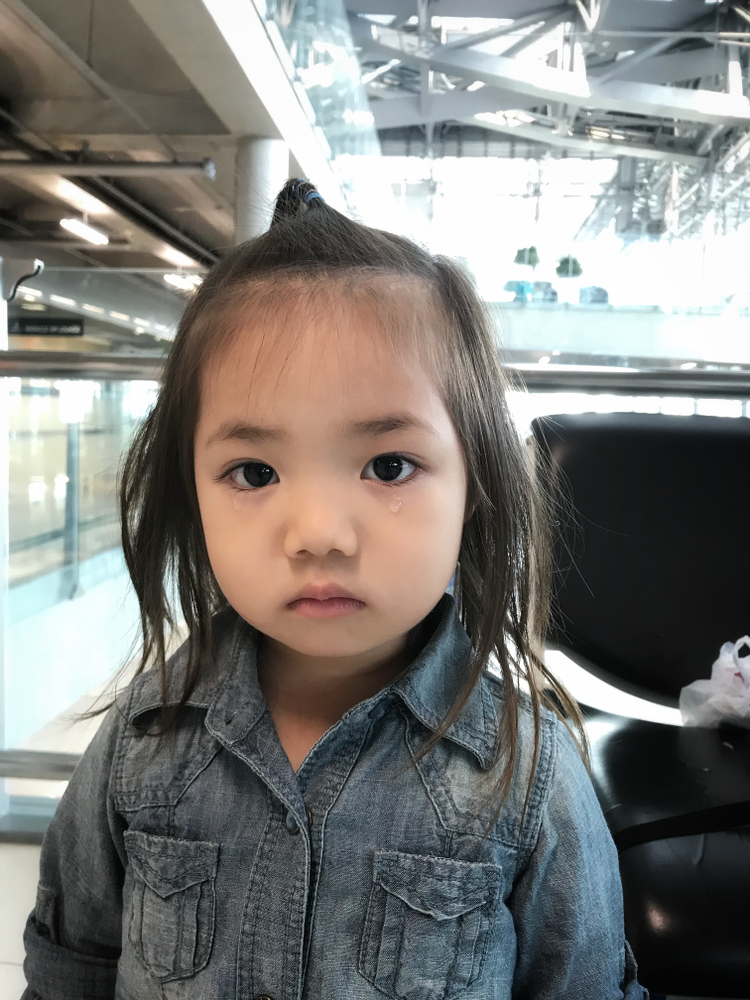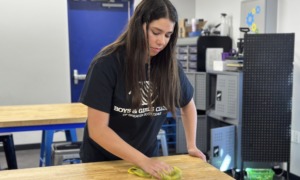
SweetLeMontea/Shutterstock
.
Like most children, I never realized the tremendous impact my father’s values and culture would have on me. My mother was mainly out of the picture growing up so I relied heavily on the morals of my father, an irish immigrant who moved to Brooklyn at the ripe age of 22. Having very limited opportunities for education in Dublin and almost no money, a one-way ticket to New York seemed like the only way out.
During the 1970s, the Republic of Ireland was in a state of inflation from rising oil prices, industrial relations disputes and poor management of the economy. At one point it was referred to as the “sick man of Europe.” In those days, education was always put on the back burner. A large concentration of immigrants from Ireland fled to Brooklyn in the early 1980s, many of whom were unskilled or semiskilled workers looking to find any job they could in the U.S.

Alana Redmond
My father had a choice — he could choose to stay in Ireland and work on the roads like his father and make a decent living, move to Britain (which many young men did during those days) or hop on plane with nothing but the clothes on his back and a few quid in his pocket. As a 23-year-old now, I can’t imagine the bravery it took my father to leave behind an entire family and emigrate.
The simplicity of staying in Ireland was a safe route my father didn’t want to take. Although there was an economic downturn, his future was pretty set. A wife, a job and a few pints of Guinness in between. But according to my father, alcoholism was rampant in those days and many men (working or unemployed) were depressed, often commiting suicide and leaving a whole family behind.
Growing up, I never understand my father’s journey to the United States as something of an accomplishment. You hear stories of entire families fleeing war-torn countries ravaged by poverty and it almost makes my father’s journey seem like a walk in the park. It wasn’t until I was much older that I finally grasped the dangers of coming to this country and how having American children can put you in a tough place.
I feel a sense of closeness now to other families who come to this country in search of a better life. I know I have been very fortunate to have a father who is still able to live here legally. However, sometimes all it takes is one new law that could send him back. I realize today — more than ever — it doesn’t take much to get deported. The immigration officers don’t care if you have lived in this country for two decades or if you have children who rely on you for support. To ICE (Immigration and Customs Enforcement) and immigration officers, it’s another day at work — for families of immigrants, it’s their entire life.
Divided by Deportation
Every year during my childhood, we were fortunate enough to visit our family in Ireland. There I built some of my best childhood memories and got in touch with my cultural roots. Little did I know that every trip we took was another risk for my father.
When you emigrate to the United States, there are strict policies on grounds for deportation. They include aggravated felonies, drug convictions, domestic violence and other criminal activity such as tax evasion. The short story is that my father did get in a bit of legal tax complication following the divorce from my mother, and this immediately put a target on his back.
Growing up, my father never shared the many times he thought he might not make it back to the U.S. It wasn’t until a few years ago when we were leaving Dublin that this became a reality to me. I was with my little brother, older sister and my dad and we were ready to board our flight back home. Because my father is a citizen of Ireland, we stood in line with the other Irish citizens. The American customs officer grabbed our passports and asked us a few personal questions each. I thought everything was fine until he asked us to follow him. Things then got alarming because we only had one hour until our plane was leaving.
He took us into a room with a bunch of other worried families. We waited as long as we could until my dad had to tell us to start boarding the plane without him. My sister and I were trying to hide the fear in our eyes by encouraging our little brother not to be worried. As the eldest of the three, I felt it was my responsibility to step up and take control.
We headed to our terminal in hopes that dad would be following behind very soon. When he didn’t take his seat on the plane and the flight attendant began shutting the overhead compartments, I knew we were alone. I remember staring down the aisle forever just waiting for my dad to come save us. But he never did. As the plane took off on the runway, the flight attendant took her seat and everything became a reality.
Invisible Borders That Divided My Family
There was no border wall that divided us that day, no racial profiling or even suspicious activity. This was the result of a minor criminal past and a strict immigration officer. My father remained in Ireland for a few weeks. The only thing to do was get an immigration attorney who would help represent him while he was away. Luckily, he was able to leave Ireland and return home within a few weeks.
This day turned our whole life upside down and made me really thankful that we had the resources to get him the representation he needed. It really put immigration into perspective for us because there are so many unfortunate people who have been sent back to their countries for even minor crimes and are exiled from ever returning their families to the U.S.
The political world today is so frightening, not only for people who cross the border from Mexico or other countries, but even for citizens who live here who have known someone affected deeply by these invisible borders.
Alana Redmond works with David A. Breston in Houston, an immigration firm that helps immigrants seek permanent residency for families facing deportation or seeking asylum in the United States. She is passionate about helping educate immigrant families on their legal rights in the U.S.































